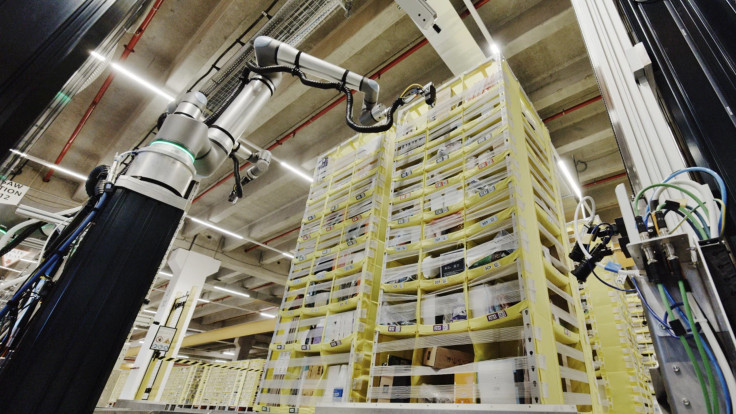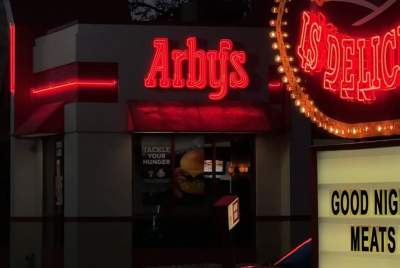Major Amazon Business In The UK Flops — Over 200 Workers Set To Lose Their Job: Experts Explain What Went Wrong
Amazon shifts focus to Whole Foods, online grocery, and retail partnerships, leaving staff facing uncertain futures

Amazon has confirmed it will close all 19 of its Amazon Fresh grocery stores in the UK, placing around 250 jobs at risk. The move marks a significant retreat from the technology giant's effort to break into high street food retail.
The Fresh stores, launched in London in 2021, were designed to showcase Amazon's 'Just Walk Out' checkout-free system. Shoppers could select products and leave without visiting a till, with sensors and cameras charging purchases automatically. But weak demand, high operating costs and strong competition from established supermarkets have forced Amazon to scale back.
Store Closures and Job Cuts
The company said five of the Fresh locations will be converted into Whole Foods Market outlets, taking the premium chain's UK footprint to 12 stores by the end of 2026. The remaining sites will be closed.
Exact staffing figures have not been disclosed, though The Times reported that up to 250 employees could be affected. Amazon has said it will try to redeploy staff where possible, but opportunities may be limited for those based in areas without nearby Amazon facilities.
Why Amazon Struggled
Retail analysts told the Financial Times that Fresh stores faced several obstacles. Footfall was lower than expected, with many customers preferring traditional supermarkets that offered broader product ranges, more convenient locations and competitive pricing.
The UK grocery market is dominated by Tesco, Sainsbury's and Morrisons. These retailers benefit from well-established supply chains, loyalty schemes and extensive store networks, making it difficult for Amazon to achieve scale with a smaller number of outlets.
The checkout-free system also proved costly to run. The technology requires frequent sensor calibration, anti-theft measures, ongoing hardware maintenance and payment reconciliation. When glitches occurred, staff had to step in, reducing the promise of a seamless shopping experience.
Strategy and Regulation
Amazon's grocery operations have also faced scrutiny from regulators. The Competition and Markets Authority has examined its treatment of suppliers, including complaints of late payments between 2022 and 2025, according to The Guardian. Rising inflation and wider cost-of-living pressures added to the challenge of building consumer loyalty to a new shopping format.
Industry observers said these pressures meant the investment required to sustain Fresh stores was not matched by the revenue they generated. Instead, Amazon is shifting its focus to partnerships with Morrisons and Co-op, as well as expanding Fresh product ranges through its online platform. Analysts suggested the company is not abandoning food retail, but concentrating on areas where it can compete more effectively.
🇬🇧 Amazon Fresh shops to close in Britain as the public don't like 'big brother' requirements which include a smartphone to enter the shop, whilst cameras and sensors monitor your every move and an AI network gathers data to debit your bank account.
— Wireless Warrior (@Anti5GWarrior) September 23, 2025
🧵https://t.co/iFrQQ8iUAm
*Amazon plans to shut its 19 UK Amazon Fresh stores
— Mattycakes (@Matt24695841) September 23, 2025
Why would anyone walk into an Amazon shop for groceries when you have so many other brand options you either trust or at least understand?
— Puny_Matt (@Puny_Matt) September 23, 2025
Impact on Staff
For employees, the closures bring uncertainty. Some may transfer to Whole Foods locations, though this could involve changes in role, location or pay. Redeployment to other parts of Amazon may not be feasible for all staff, particularly those based in areas without a large company presence.
Unions and employment specialists have warned that workers in retail often struggle during such transitions, especially when their experience is tied to specific technology systems not widely used elsewhere.
Amazon's Next Steps
The closures represent a strategic pivot for Amazon. While the company is stepping back from physical grocery stores in the UK, it is strengthening partnerships, investing in online delivery and building up Whole Foods as its premium brand.
The decision underscores the challenges of launching new technology in a competitive grocery sector. For around 250 affected employees, the future remains uncertain, while Amazon's UK food retail ambitions move towards partnerships and digital growth.
© Copyright IBTimes 2025. All rights reserved.





















